|
 Secure Site
Secure Site
|
 |
Archive for the 'Zen Timers' Category
 Brigitte Mars, author, herbalist, and amazing raw food chef from Boulder, CO Peter’s Fairy Godmother, Brigitte Mars (an herbalist, famous author, and raw food chef from Boulder, CO) just gave him the Yoga Garden Game for his birthday! Our whole family loves to play this game at home and when we travel. We use our Zen Timer/Alarm Clock to practice holding each pose for 5 seconds.
Here are Peter’s favorite yoga Poses:
- Frog Pose
- Snake Pose
- Tree Pose
- Cat Pose
- Cow Pose
- Butterfly Pose
- Downward Facing Dog Pose
- Bridge Pose
- Bamboo Pose
 Yoga with kids in nature
 - Bamboo chime clock and yoga timer
Children love to move their bodies! Yoga improves their ability to concentrate and focus. Yoga helps children to be calm too!
Posted in Chime Alarm Clocks, Now & Zen Alarm Clocks, Yoga Timer, Yoga Timers by Now & Zen, Zen Timers
 Meditation Timers & Clocks - Utgawa I’m not exactly clear on how they did it. Something about taking Group No. 1 over here, hooking them up to a nifty array of happyfun electrodes and letting them begin their deep and experienced meditation practice, and then, at some point, suddenly blasting the sound of a woman screaming in distress right into their prefrontal lobes like a swell little ice pick of terror.
And then the researchers observed which parts of the meditators’ brains lit up and noted that it was the hunks related to empathy and compassion and also the parts that say, “Hey, that screaming can’t be good, and I think I’ll get up and go help that poor woman.”
Then they did a similar thing with Group No. 2, only minus most of the experienced meditation part. And when this group heard the same woman screaming in distress, their brains also lit up, only this time it was those parts that said, “Huh, chick screaming in distress, let us now reach for the remote control and turn up the volume on this delightful episode of ‘How I Met Your Mother’ to drown out that obnoxious sound, because, you know, how annoying, and, by the way, I could really use a Bud Light and some guns right about now.”
It’s not exactly news
I might be oversimplifying. Or exaggerating. No matter, because the fact remains it is was one of those nice studies that deigns to reveal a helpful factoid that millions of people, and thousands of teachers and gurus and healers, have known for roughly a billion years.
It is this: Deep meditation, the act of stilling yourself and calming the mind and working with the breath and maybe reciting a mantra or clearing your chakras or running a nice bolt of golden energy up and down your spine, can have a positive effect on your worldview, can inject some divine love juice into your core and make you more sympathetic, kinder, more apt to feel a natural inclination toward generosity and compassion and helping people who might be, you know, screaming.
I know. Totally shocking.
It’s a small study that goes handily with the umpteen similar bits of research recently, all of which seem to indicate some other famously healthful aspect of meditation: stress relief, illness prevention, life extension, emotional stability, improved sleep, increased productivity, better orgasms, fewer ingrown hairs, brighter sunshine, better gas mileage and also merely learning to sit still and shut up once in a while, which I can promise you will make your wife and your siblings and your kids and your dog and even your own squealing manic ego very happy indeed.
 Meditation Timers and Alarm Clocks with Soothing Chimes Did you already know of such benefits? I’m guessing you did. Here in NorCal, meditation is so widespread and normalized it’s available in the Whole Foods bulk aisle. I do believe over in Berkeley and parts of Marin County you are actually required by law to meditate at least twice a week atop your handmade zazen cushion in your Zen rock garden next to your carefully restored BMW 2002 as you listen to very cheesy wind chime music on an iPod-enabled Bang & Olufsen 5.1 home theater system just before you pour yourself a nice glass of Sonoma Chard, or the police come and politely take away your Tibetan Nag Champa incense holder for a month.
Just a froufrou thing
Ah, but I suppose this is not the case nationwide. I imagine the practice is still widely considered, even after all these millennia and all these studies and teachers and perky New Age bookstores and all the obvious proof that meditating has little, really, to do with religious belief, to be some sort of hippie cultish pagan anti-Christian satanic froufrou thing more aligned with monks and bells and Hindu wackiness than with everyday gul-dang gun-smokin’ ‘Merkin life.
And hence I guess we still need studies like this to lend validation to a timeless wisdom that, if disseminated more widely, could improve the health of the nation. Hey, every little bit helps, right? Enough studies and enough serious medical journals bring alternative ideas like meditation to the fore and maybe, just maybe, we could nudge the culture away from mania and obsession and road rage and a zillion Prozac prescriptions as the only means of coping with the trudging maelstrom of daily existence.
It can’t hurt. Because the problem is that we as a culture are still very much trained, beaten, shaped from birth to never, ever, no matter what you do, calm down and breathe more consciously and try to live more fully in the moment you are in. Present-time awareness? Breathwork? Cultivating a sense of loving kindness? Save it for the New Age Expo, hippie. Real men live in some neurotic-psychotic state of need and regret and wishful thinking, all undercut with a constant shiver of never-ending dread. Isn’t that right, Mr. President?
But meditation, well, it abides none of that noise. It brings you into the here and now and plops you into the lap of stillness and reminds you that there is more to it all, that you have incredible power to change your own habits and tendencies and daily love quotients, that God often speaks in whispers and flutters and quiet little licks on your heart and only when you dial down your raging internal dialogue can you actually hear what she’s trying to say. What’s not to like?
Of course, you need no scientific study to learn any of this for yourself. But who knows, maybe there will come a day when you can stroll into just about any doctor’s office and she will say, what’s that? You say you’re getting weird rashes and heart palpitations and you feel overwhelmed? You have rage issues? Melodrama? Warmongering and pain and fear of the Other? Have a glass of wine. Eat better. Exercise. More sex, less whining, better books.
And oh yes, also this: Once a day, just for a few minutes, go sit very still, close your eyes, shut up and breathe.
Use our unique “Zen Clock” which functions as a Yoga & Meditation Timer. It features a long-resonating acoustic chime that brings your meditation or yoga session to a gradual close, preserving the environment of stillness while also acting as an effective time signal. Our Yoga Timer & Clock can be programmed to chime at the end of the meditation or yoga session or periodically throughout the session as a kind of sonic yantra. The beauty and functionality of the Zen Clock/Timer makes it a meditation tool that can actually help you “make time” for meditation in your life. Bring yourself back to balance.
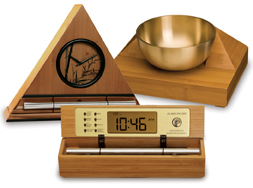 Meditation Timers and Clocks -- From Now & Zen adapted from SFgate.com by Mark Morford columns with inset links to related material can be found at sfgate.com/columnists/morford.
Now & Zen – The Zen Timer and Alarm Clock Store
1638 Pearl Street
Boulder, CO 80302
(800) 779-6383
Posted in Bamboo Chime Clocks, Meditation Timers, Meditation Tools, mindfulness practice, Yoga Timer, Zen Timers
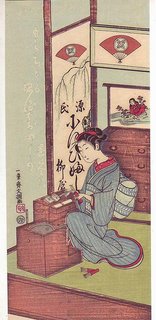 the more you sleep, the longer you live... It’s done in bed, it feels great and most Americans don’t get enough of it. It’s sleep, of course, the most undervalued contributor to optimum health and performance.
Did you know that sleep had anything to do with success in sticking to a diet? Get to know leptin and ghrelin. They sound like a Hungarian comedy act, but they are hormones that regulate appetite. Ghrelin is produced in the stomach and signals the brain when it’s time to eat. Leptin is secreted by adipose tissue (i.e., fat) and has the reverse effect, telling your brain when you are full. Chronic lack of sleep increases ghrelin and decreases leptin, leading you to feel hungry when you don’t really need to eat and to keep eating after you have gotten the calories you need.
Hitting the weights at the gym? Good sleep will bring you the results you want more quickly. The body repairs itself, including rebuilding your sore biceps, during the deepest phase of sleep. That’s why a good night’s sleep will not only make your workouts more productive but will also boost your immune system in general.
Despite these and other benefits, including greater mental alertness, improved concentration, better mood – even lower risk of car accidents – sleep remains underrated when it comes to health promotion. Maybe people can’t believe that something as mundane as consistently getting seven or eight hours of sleep a night can have such a positive impact on their health. Or maybe, in a culture of double cappuccinos and Ambien, sleep deprivation goes unrecognized in the first place.
If you get stuck in a period of weeks or even months where sleep is hard to come by (e.g., new baby, a big work deadline), pay off your sleep debt with extra sleep as soon as you can and you should suffer no long-term ill effects. But don’t make sleep deprivation a lifelong habit. A study of almost 7,000 Alameda County residents, over a nine-year period, found that people who routinely slept six or fewer hours a night had about 70 percent higher risk of dying than did people of similar age who slept seven or eight hours a night.
 choose deep and tranquil sleep - get a soothing chime alarm clock There are many common sense ways to make it easier to get to sleep, including keeping to a consistent schedule and avoiding big meals, caffeine and intense exercise just before bed. A full list of strategies is available from the National Institutes of Health at www.nhlbi. nih.gov/health/public/sleep/healthy sleepfs.pdf.
The Institute’s strategies for better sleep are useful, but they work only if you make sleep a priority, which many people in the compulsively busy Bay Area do not. If you think you don’t have time to sleep enough, remember that survey research shows that most people grossly underestimate how much time gets away from them in the evenings when they are idly surfing the Net or half-watching TV. If you feel tired, turn off the machines and go to bed. And if you believe you absolutely must see the next episode of “Big Brother” or a rerun of “Gilligan’s Island,” remember that TiVo and VCRs were invented so that we can watch such programs later, when we are rested enough to appreciate their nuanced messages and enduring contributions to our culture.
adapted from SFgate.com, by Dr. Keith Humphreys
One of the ultimate Zen like experiences is waking-up from a great slumber refreshed and energized. Your mind and body are harmoniously one, both alert and focused. Having a refreshed mind and body are two keys to a natural and Zen lifestyle. Waking up in the morning should not be a loud and abrupt awakening, but rather it should be a peaceful positive experience. The right natural alarm clock can transition your deep and tranquil sleep into a serene start to consciousness. Imagine a long-resonating Tibetan bell-like chime waking you up to a beautiful morning experience.
The right alarm clock can be the most beneficial investment for you. With our Now & Zen natural alarm clock you are awakened more gradually and thus more naturally. Now & Zen is focused on creating a naturalistic lifestyle, and our clocks are an example of our philosophy.
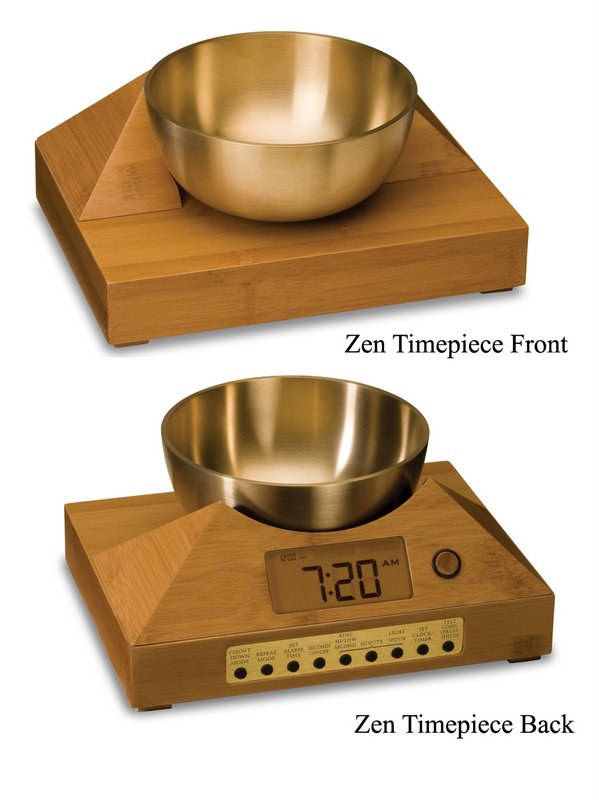 Choose the Gentle Chime Alarm Clock Now & Zen – The Gentle Chime Alarm Clock Store
1638 Pearl Street
Boulder, CO 80302
(800) 779-6383
Posted in Bamboo Chime Clocks, sleep, Sleep Habits, Zen Timers
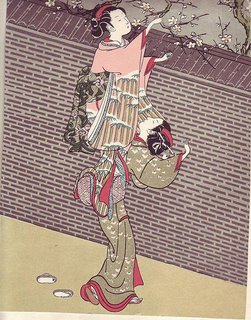 Utamaro Ukiyo-e, Two Ladies With Flowers The “Floating World” described the urban lifestyle, especially the pleasure-seeking aspects, of the Edo-period Japan (1600 –1867).
The term is also an ironic allusion to the homophone (the same as another word but differs in meaning) “Sorrowful World”, the earthly plane of death and rebirth from which Buddhists sought release.
The contemporary novelist Asai Ryoi, in his Ukiyo monogatari (“Tales of the Floating World”, c. 1661), provides some insight into the concept of the floating world:
… Living only for the moment, turning our full attention to the pleasures of the moon, the snow, the cherry blossoms and the maple leaves; singing songs, drinking wine, diverting ourselves in just floating, floating; … refusing to be disheartened, like a gourd floating along with the river current: this is what we call the floating world…
Ukiyo floating world adapted from wikipedia.org
One of the ultimate Zen like experiences is waking-up from a great slumber refreshed and energized. Your mind and body are harmoniously one, both alert and focused. Having a refreshed mind and body are two keys to a natural and Zen lifestyle. Waking up in the morning should not be a loud and abrupt awakening, but rather it should be a peaceful positive experience. The right natural alarm clock can transition your deep and tranquil sleep into a serene start to consciousness. Imagine a long-resonating Tibetan bell-like chime waking you up to a beautiful morning experience.
The right alarm clock can be the most beneficial investment for you. With our Now & Zen natural alarm clock you are awakened more gradually and thus more naturally. Now & Zen is focused on creating a naturalistic lifestyle, and our clocks are an example of our philosophy.
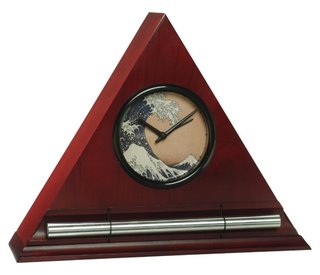 Meditation Clock Timer- Zen Alarm Clock, Ukiyo-e Hokusai Wave Dial Face Now & Zen – The Zen Alarm Clock Store
1638 Pearl St.
Boulder, CO 80302
(800) 779-6383
Posted in Beauty, Cherry Blossoms, Chime Alarm Clocks, Hokusai Wave, Japanese Inspired Zen Clocks, Meditation Timers, Meditation Tools, Now & Zen Alarm Clocks, Progressive Awakening, Zen Timers
 koi fishes in the pond Koi or more specifically nishikigoi, (literally “brocaded carp”), are ornamental domesticated varieties of the common carp (Cyprinus carpio) that are kept for decorative purposes in outdoor ponds and water gardens. They are also called Japanese carp.
adapted from wikipedia.org
One of the ultimate Zen like experiences is waking-up from a great slumber refreshed and energized. Your mind and body are harmoniously one, both alert and focused. Having a refreshed mind and body are two keys to a natural and Zen lifestyle. Waking up in the morning should not be a loud and abrupt awakening, but rather it should be a peaceful positive experience. The right natural alarm clock can transition your deep and tranquil sleep into a serene start to consciousness. Imagine a long-resonating Tibetan bell-like chime waking you up to a beautiful morning experience.
The right alarm clock can be the most beneficial investment for you. With our Now & Zen natural alarm clock you are awakened more gradually and thus more naturally. Now & Zen is focused on creating a naturalistic lifestyle, and our clocks are an example of our philosophy.
 mindful of the koi
Now & Zen – The Zen Alarm Clock Store
1638 Pearl Street
Boulder, CO 80302
(800) 779-6383
Posted in Chime Alarm Clocks, Now & Zen Alarm Clocks, Progressive Awakening, Zen Timers
 acoutic music The theme of spiritual life as a kind of awakening is a metaphor found in every culture and tradition. You might enjoy listening to music by the great German composer Johann Sebastian Bach, who chose the theme of awakening for a cantata he composed in 1731. Inspired by the Gospel of Matthew 25:1–13, it opens with the words, “Wachet auf, ruft uns die Stimme” (Sleepers awake! The Voice calls to us).
adapted from Yoga International, by Rolf Sovik, PsyD, The author of Moving Inward: The Journey to Meditation.
Boulder, Colorado—an innovative company has taken one of life’s most unpleasant experiences (being startled awake by your alarm clock early Monday morning), and transformed it into something to actually look forward to. “The Zen Alarm Clock,” uses soothing acoustic chimes that awaken users gently and gradually, making waking up a real pleasure. Rather than an artificial recorded sound played through a speaker, the Zen Clock features an alloy chime bar similar to a wind chime.
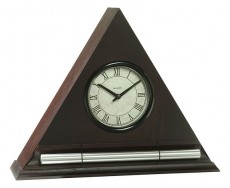 acoutic musical alarm clocks with chime Now & Zen – The Zen Alarm Clock Store
1638 Pearl Street
Boulder, CO 80302
(800) 779-6383
Posted in Zen Timers
 Warm winter sun “Imagine yourself outside on a beautiful Saturday afternoon, just in the flow, enjoying life. Suddenly the sun disappears behind a cloud that you didn’t know was there. It’s dark now, and you feel off kilter, sad.”
That’s how LeNeva Spires, who works as an executive assistant at a university in Portland, Oregon, describes the seasonal affective disorder (SAD) that affects her every autumn.
Though classified as a type of depression, “it feels more like something is missing, like things are not quite right,” says Spires.
It’s precisely brightness (or rather, the lack of it) that triggers this mood disorder, one of few health problems tied to a season. SAD primarily affects people who live in northern latitudes (above San Francisco and Washington, D.C.), and more women than men. It often begins in September or October, as the days shorten, and lingers until spring.
SAD tends to respond readily to the very thing we’re missing in the winter months: light. Learn how to get more of it as well as discover the best foods, exercise, supplements, and herbs to create your action plan for a brighter, happier winter.
1. Let There Be Light
For seasonal depression and the winter blahs, “the treatment of choice is light,” says psychiatrist Alfred Lewy. How do you get that light? You could move closer to the equator, where the sun rises and sets at a more consistent time all year long. Or, if your family and work life allow it, you could change your sleep schedule during the winter so you wake up a half-hour after sunrise (check your local paper to find out when the sun rises), and then go immediately outside.
But for most of us, the easiest option is to purchase a light box outfitted with special bulbs that mimic the brightness of the morning sun. Light therapy works by getting our sleep-wake cycle to synchronize with an electric-powered “sun,” thereby resetting our circadian clock. We tend to feel our best when we wake with the dawn, and the light box essentially helps you make your own dawn.
Light-Box Lowdown
Available online and at specialty stores (starting at about $160), light boxes are safe to use at home, whether or not you have an official diagnosis of SAD. Lewy recommends placing the light box at a 45-degree angle to you, from either the side or above, and starting with a morning dose of light: about 30 minutes, taken between 6 a.m. and 8 a.m. Some people may need more time — 45 minutes, or even up to two hours — but once they feel an improvement in their mood, they can reduce the sessions to 30 minutes.
The light receptors that help rest our circadian clocks reside in our eyes, so keep your eyes open during light treatment. In fact, Lewy suggests glancing sideways at the lightbulbs once or twice every minute (something you should never do with the real sun).
A small number of SAD sufferers respond best to early-evening light treatments. After a week or two of morning treatment, if you notice no improvement even with two-hour doses, try the evening sessions instead, suggests Lewy. People usually begin to feel better within a few days but should keep up the treatments daily, ideally from the onset of symptoms (usually in September or October) through at least March.
 bring on the night 2. Bring On the Night
You need a good night’s sleep in order to mitigate winter depression — and by “good,” Emmons means sleeping for eight or nine hours a night — but not more. Keep bedtime and wake-up time consistent, too; Emmons suggests going to bed between 10 and 11 p.m. and rising between 6 and 7 a.m.
Melatonin Matters
While light-box therapy remains the primary remedy for synchronizing your sleep patterns, supplementing with melatonin (the “darkness” neurotransmitter) may help, too. The brain’s melatonin levels rise to their highest level at night, and people normally start secreting the hormone a few hours before bedtime, to prime the body for sleep.
Like light therapy in the morning, taking melatonin supplements in the afternoon can help shift the circadian clock. In fact, Lewy often prescribes both morning light and 0.3 mg to 0.5 mg of melatonin in the afternoon for best results in resyncing the circadian processes. Since melatonin can make some people sleepy, avoid driving as you figure out the best dosage. You’ll find melatonin tablets at natural-foods stores.
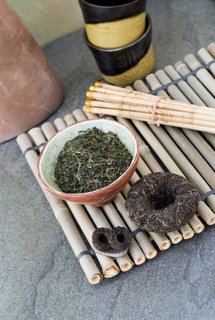 eat well 3. Eat to Feel Good
What we eat can affect our brain chemistry and our mood. To combat SAD, Emmons recommends focusing on foods that increase and stabilize levels of serotonin, a mood-improving hormone that tends to decrease in the winter. These foods include choices rich in tryptophan, a building block of serotonin.
We often crave high-carbohydrate comfort foods in winter, but it’s wise to resist the urge, he says. As he explains it, indulging in refined carbs, such as white bread and white rice, may indeed offer an initial feel-good spike in serotonin levels. But, as with a sugar rush, refined carbs end up depleting our serotonin levels soon after.
Instead, eat a variety of complex carbohydrates, such as barley, brown rice, oats, and other whole grains, and include a small amount of lean protein, ideally a high-tryptophan protein (turkey, cheese, eggs) at each meal or snack. Also include leafy green vegetables, such as kale and bok choy, which provide mood-supporting B vitamins and minerals that help convert tryptophan into serotonin.
4. Move and Stretch
“Exercise helps [all types of depression] for many reasons,” says Emmons. It boosts serotonin levels in the brain; it improves circulation, which gets more blood and nutrients to the brain; it increases energy and metabolism, even at the cellular level; and it improves glucose regulation, which also affects energy levels.
For those taking antidepressant medication, exercise helps improve the effectiveness of the drug, likely by improving circulation. More of the medicine gets to the brain, where it’s needed, and the body metabolizes the drug more easily, which reduces side effects.
The best news about SAD and exercise, says Emmons, is that you don’t have to take your workout to the extreme. Mild aerobic exercise for 30 minutes can usually lighten your mood. If it’s not too cold, walking outdoors is a great option. At the gym, try the stationary bike or treadmill for a half-hour every day.
5. Supplement Smartly
Several dietary supplements can help fill in any nutritional gaps and in turn may lift your mood. Emmons says his clients have had success with the following four:
Vitamin D
Deficiency in this vitamin is extremely common and may contribute to both ordinary and seasonal depression (along with other illnesses). While light boxes substitute for the sun in certain ways, they don’t provide this critical nutrient (which is more of a hormone than a vitamin). In the winter, a vitamin D supplement can help regulate your mood.
Dosage: 2,000 IU of vitamin D3 daily
Multivitamin
A good one includes plenty of B vitamins, as well as key minerals such as selenium (which helps support mood) and magnesium (which reduces anxiety and muscle tension).
Dosage: 1 daily
B-Vitamin Complex
These assist the brain in producing neurotransmitters such as serotonin and norepinephrine.
Dosage: One B-50 supplement daily (along with the multivitamin)
Omega-3-Rich Fish Oil
Studies suggest that omega-3 fatty acids may help prevent and ease depression and other mood disorders. Flax makes a good substitute for strict vegetarians.
Dosage: 1,000 mg of fish oil in capsule form twice daily, or 1 tablespoon of flax oil twice a day
6. Take It Outside
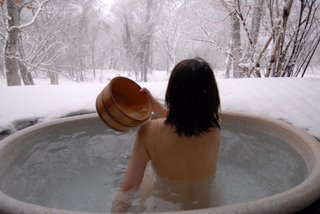 go outside to cheer up Spending time outdoors helps us reconnect with nature, says Emmons, thus healing a rift that seems to lie at the heart of seasonal depression. If you combine a serotonin-boosting exercise with your outdoor time — like a brisk walk at a local park or an afternoon of cross-country skiing — you’re combating the winter blues on two fronts.
During the summer, take advantage of the sunlight by spending 15 to 20 minutes a day in the sun without sunscreen (unless you’re at risk of skin cancer). This will help build your vitamin D levels for next year.
7. Try Healing Herbs
Certain medicinal plants ease the winter blues, says Margi Flint, who runs the Earthson Herbals school in Marblehead, Massachusetts.
Uplifting Tea
For a mild, mood-boosting infusion, simmer 1 ounce oatstraw in 1 quart of water for 40 to 60 minutes. Remove from heat, add 2 tablespoons of dried chamomile and 2 tablespoons of dried lemon balm; cover and steep for 15 minutes. Strain and drink several cups daily.
Aromatherapy
Since the smell of any citrus uplifts the spirit, add a total of 10 drops of any combination of lemon, lime, and orange essential oils to each ounce of lotion or massage oil. Use daily, or use these oils in a diffuser.
Daily Tonic
Holy basil, ashwaganda, and gotu dola — from India’s traditional system of medicine, Ayurveda — help ease depression. Flint suggests using the powdered form; add a 1/4 teaspoon of each to oatmeal or applesauce.
8. Don’t Go It Alone
As with any form of depression, working with a mental-health professional for SAD can be beneficial. If you experience suicidal thoughts or other serious symptoms, seek help immediately.
One of the ultimate Zen like experiences is waking-up from a great slumber refreshed and energized. Your mind and body are harmoniously one, both alert and focused. Having a refreshed mind and body are two keys to a natural and Zen lifestyle. Waking up in the morning should not be a loud and abrupt awakening, but rather it should be a peaceful positive experience. The right natural alarm clock can transition your deep and tranquil sleep into a serene start to consciousness. Imagine a long-resonating Tibetan bell-like chime waking you up to a beautiful morning experience.
The right alarm clock can be the most beneficial investment for you. With our Now & Zen natural alarm clock you are awakened more gradually and thus more naturally. Now & Zen is focused on creating a naturalistic lifestyle, and our clocks are an example of our philosophy.
adapted from Body + Soul, January/February 2009
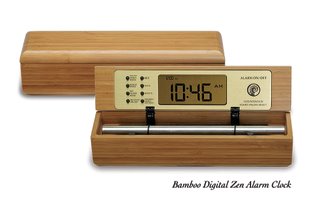 Bamboo Alarm Clocks & Meditation Timers
Now & Zen – Gradual Chime Alarm Clock Store
1638 Pearl Street
Boulder, CO 80302
(800) 779-6383
Posted in Goodness, Insomnia, intention, sleep, Sleep Habits, Well-being, Zen Timers
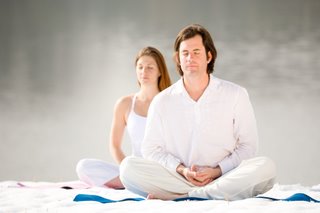 How to feel more compassionate Maitryadisu balani
The cultivation of friendliness creates inner strength. (Yoga Sutra III.24)
We typically think of our emotional range as something that is fixed and unchanging—a reflection of the personality we’re born with. But research is revealing the possibility that we may be able to cultivate and increase our ability to feel the emotional state of compassion. Researchers have found that feeling connected to others is as learnable as any other skill. “We are trying to provide evidence that meditation can cultivate compassion, and that you can see the change in both the person’s behavior and the function of the brain,” Lutz says.
So what does compassion look like in the brain? To find out, Lutz and his colleagues compared two groups of -meditators—one group whose members were experienced in compassion meditation, and the other a group whose members were not—and gave them the same instructions: to generate a state of love and compassion by thinking about someone they care about, extend those feelings to others, and finally, to feel love and compassion without any specific object. As each of the participants meditated in-side the fMRI brain scanners, they were occasionally interrupted by spontaneous and unexpected human sounds—such as a baby cooing or a woman screaming—that might elicit feelings of care or concern.
All of the meditators showed emotional responses to the sounds. But the more experienced compassion meditators showed a larger brain response in areas important for processing physical sensations and for emotional responding, particularly to sounds of distress. The researchers also observed an increase in heart rate that corresponded to the brain changes. These findings suggest that the meditators were having a genuine empathic response and that the experienced meditators felt greater compassion. In other words, compassion meditation appears to make the brain more naturally open to a connection with others.
These meditation techniques may have benefits beyond the experience of spontaneous compassion. A study by psychology professor Barbara Fredrickson and her colleagues at the University of North Carolina, Chapel Hill, and the University of Michigan, found that a seven-week lovingkindness meditation course also increased the participants’ daily experience of joy, gratitude, and hope. The more participants meditated, the better they felt. Participants also reported a greater sense of self-acceptance, social support, purpose in life, and life satisfaction, while experiencing fewer symptoms of illness and depression. This study provides strong evidence that chipping away at the illusion of separation can open us up to a far more meaningful connection to life.
adapted from Yoga Journal, by Kelly McGonigal
Use our unique “Zen Clock” which functions as a Yoga & Meditation Timer. It features a long-resonating acoustic chime that brings your meditation or yoga session to a gradual close, preserving the environment of stillness while also acting as an effective time signal. Our Yoga Timer & Clock can be programmed to chime at the end of the meditation or yoga session or periodically throughout the session as a kind of sonic yantra. The beauty and functionality of the Zen Clock/Timer makes it a meditation tool that can actually help you “make time” for meditation in your life. Bring yourself back to balance.
 Zen Timers and Gentle Alarm Clocks Now & Zen – The Chime Timer Store
1638 Pearl Street
Boulder, CO 80302
(800) 779-6383
Posted in Chime Alarm Clocks, intention, Meditation Timers, Meditation Tools, mindfulness practice, Now & Zen Alarm Clocks, Well-being, zen, Zen Timers
 set your zen timer for a mini-meditation Memorize a three-to-five-word phrase, a mantra, that will bring you back to center when things get rough, such as “I am strong” or “Spirit will guide me.” Also, keep a peaceful image mentally on hand (a beach scene, a quiet forest) to call up in stressful moments. Set your Digital Meditation Timer with Chime for 5 minutes and sit silently repeating your phrase until the calming chime sounds.
adapted from Body + Soul Magazine
 digital timers for meditation and yoga with chime Now & Zen – The Meditation Timer Store
1638 Pearl Street
Boulder, CO 80302
(800) 779-6383
Posted in Chime Alarm Clocks, intention, Meditation Timers, Meditation Tools, mindfulness practice, Well-being, Zen Timers
 enjoy a tranquil cup of tea Tea, a beverage derived from the plant Camellia sinensis, represents a sense of ceremony, history, and tranquility to people around the world. The practice of making a good cup of tea and learning about tea’s history are gaining popularity in the United States as people recognize both the physical and mental benefits of incorporating the art of tea into their daily lives.
Historically reserved for society’s upper echelon and closely connected to religious practices, tea ceremonies have been adopted by many cultures and adapted to fit various lifestyles. Today tea is the world’s most popular beverage next to water. And although schools of thought differ on the art of tea, most agree that, at the root, a good cup of tea begins with the leaf, a deep breath, and a few moments of quiet.
“The entire event of brewing and drinking [tea] can have a beneficial effect on your health and mental well-being,” says Jane Pettigrew, author of several books on the art of tea, including The Tea Companion: A Connoisseur’s Guide (Macmillan, 1997). “Tea calms and focuses you.”
The quiet elegance of the tea ceremony—both the ritualistic and formal Japanese tea ceremony and the more social Chinese version—speaks for itself. The simplicity of the ceremony, whether performed in a traditional teahouse or at home, imparts a unique sense of serenity while it opens a door to another time and culture. A growing number of people who appreciate the history and grace that tea brings to their lives have created tea rituals of their own. “Everyone develops his or her own tradition,” says Stephanie Klausner, owner of Red Crane Teas in Denver. “Ceremony is what you make it.”
 the art of tea In general, tea ceremonies provide an opportunity for the body and mind to focus on one task and release other elements of the day. “It’s a mindful process that brings us back to ourselves,” says tea instructor Donna Roberts Fellman, manager of the TeaCup in Seattle. “It’s a way to create a sacred space in our lives, to take time to stop and be mindful of the process of making a cup of tea.”
Brewing a cup of tea
There are three basic tea categories: black, green, and oolong. They’re all made from the same plant but processed differently. Black tea has been fermented (oxidized) and has a dark color and hearty flavor. Green tea skips the oxidizing and is instead steamed and parched; the flavor is more delicate, and it is light green/golden in color. Oolong, popular in China, is semi-fermented and is a cross between black and green in color and taste. Herbal teas contain no “true” tea leaves but are created from flowers, berries, peels, seeds, roots, and leaves of many different plants.
The thousands of teas available range in price from $4 to $3,000 per pound. Yet even a tea that costs $100 per pound is only fifty cents per cup, making it one of life’s more affordable luxuries. “Nobody ever thinks they like tea until they have a good cup,” says Klausner.
Steeping a pot of tea is a contemplative process that begins with the selection of tea leaves, extends to the preparation of water, and culminates in the experience of holding a warm cup, inhaling the tea aroma, and savoring the tea’s flavor. True tea drinkers discuss the process of making tea with a sense of awe; it is an art form that has been passed from one generation to the next and used as a venue for preserving family traditions. Tea aficionados pay close attention to this art of preparation, which results in a superior cup of tea and provides the mind with a respite from the day’s emotional clutter.
Although a good cup of tea requires a mere ten to fifteen minutes to make, creating that time for pause and reflection represents more than an investment in tea. “It’s a comforting indulgence, a delicacy that’s good for your head and your body,” Klausner says. “It’s what I do for myself.”
adapted from Natural Home Magazine, September/October 2002 by Heather Grimshaw
“The Zen Alarm Clock & Chime Timer‘, uses soothing acoustic chimes that signal it’s time – gently and gradually.
Rather than an artificial recorded sound played through a speaker, the Zen Clock features an alloy chime bar similar to a wind chime. When the clock’s alarm is triggered, its chime produces a long-resonating, beautiful acoustic tone reminiscent of a temple gong.
 Bamboo Digital Chime Clock, a Tea Timer Now & Zen – The Zen Timer and Alarm Clock Store
1638 Pearl Street
Boulder, CO 80302
(800) 779-6383
Posted in Tea Ceremony, Zen Timers
« Previous Page — « Previous Entries
Next Entries » — Next Page »
|
|
|
|